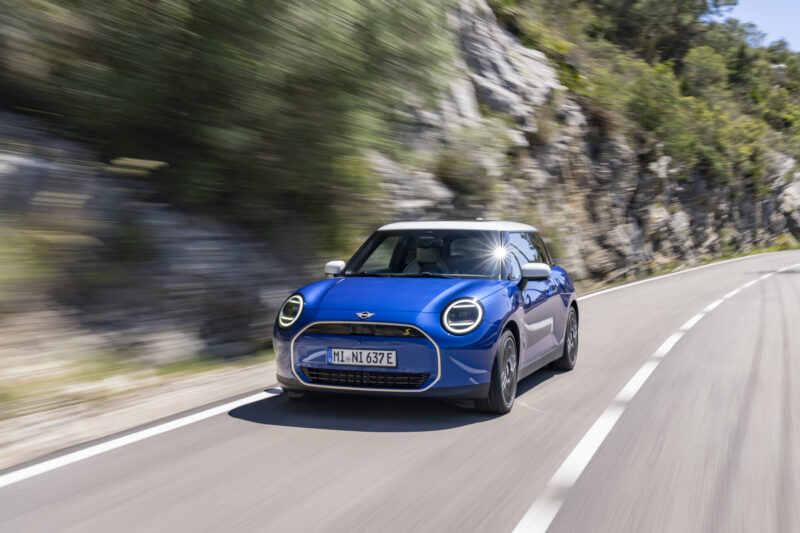People often talk about China speed, but when they do so they’re probably not thinking about the Spotlight Automotive Limited Project. Six years on and barely after mass production began the BMW venture to build the electric Mini in China may be dead thanks to the EU tariffs.
To understand the situation fully we need to dive back into the history of how international OEMs have operated in China. As China began to open up, demand for cars began to grow and in the 1980s China made all foreign producers create joint ventures if they wanted easy access to the market. These JVs initially had to be with qualifying state-owned enterprises and the foreign partner was limited to a 50% stake.
Although China became the world’s factory this did not happen for cars. There was little point for the Western, Japanese, and Korean producers who set up shop in China to export when they would have to share profits with their Chinese partner, something they would not have to do with factories elsewhere.
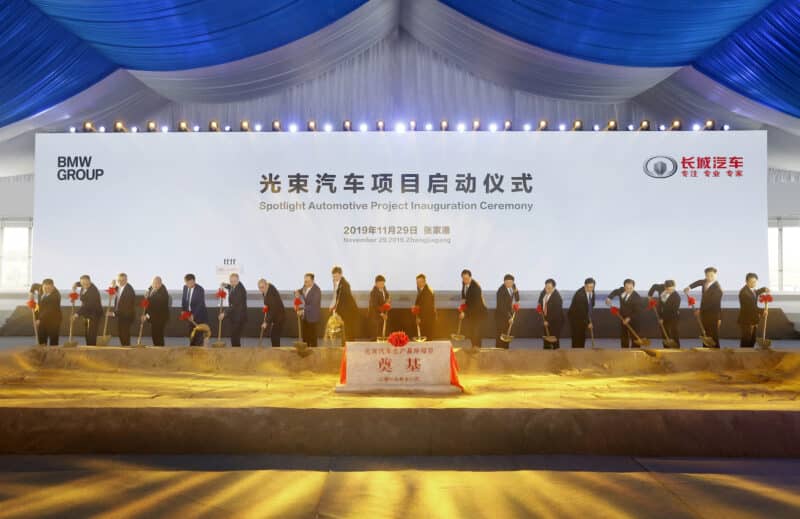
China’s National Development and Reform Commission (NDRC) in 2018 announced a phased end to the policy. Under it the caps on foreign ownership were lifted in 2020 for new energy vehicles, along with special purpose vehicles, while for passenger vehicles the date was set for 2022. Tesla became the first company to take advantage of the new arrangements and have a wholly owned factory in China to produce cars in China both for the domestic market and export.
2018 was also the year BMW Group and Great Wall Motor signed a joint venture agreement to produce Mini electric vehicles in China. Sixteen months later saw the inauguration of the Spotlight Automotive Limited JV in Zhangjiagang, Jiangsu Province. Under the plan announced in 2019, a factory would be built in the city with the partners together investing around 650 million Euro (698 million USD). The construction phase was planned for 2020 to 2022 to produce a factory employing around 3,000 people and capable of producing 160,000 cars a year.
Under China’s JV rules each foreign OEM was allowed up to two joint ventures. BMW already had a joint venture with Brilliance, founded in 2003, and so a new JV with Great Wall was already a bit of a surprise. The timing, due to the changing JV rules was even more surprising especially when in early 2019 BMW became the first OEM to announce it was taking advantage of the new rules and increasing its shareholding in BMW Brilliance to 75%.
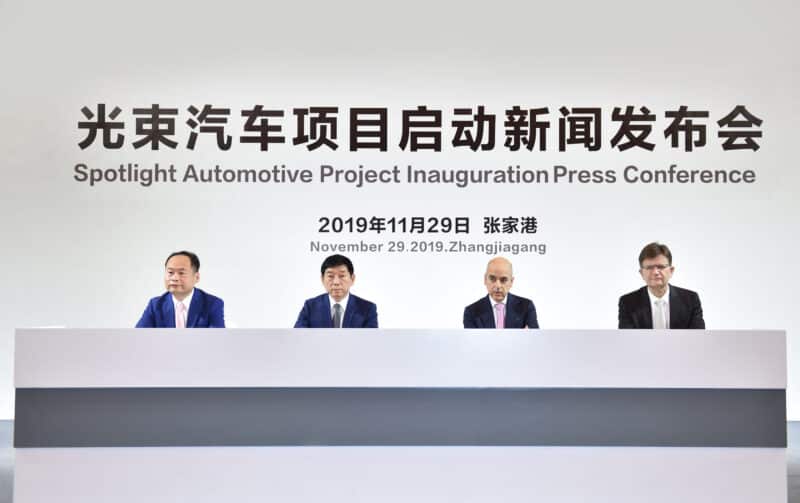
The need even to produce an electric Mini in China was also questionable. Cowley, Oxford has been the home of the Mini under BMW stewardship. Due to capacity issues some Mini models have been produced elsewhere but both electric and ICE versions of the Mini were rolling off the same UK production line.
UK government plans originally called for a ban on the sale of all ICE cars by 2030 which last year was delayed until 2035. This meant that sooner or later the factory would need to transition to producing all-electric versions. Adoption of EVs was faster than BMW anticipated meaning that the company had to electrify the third-generation Mini, something not originally intended until the new fourth-generation. Oxford was able to produce one in every two Minis as an EV for the third-generation model.
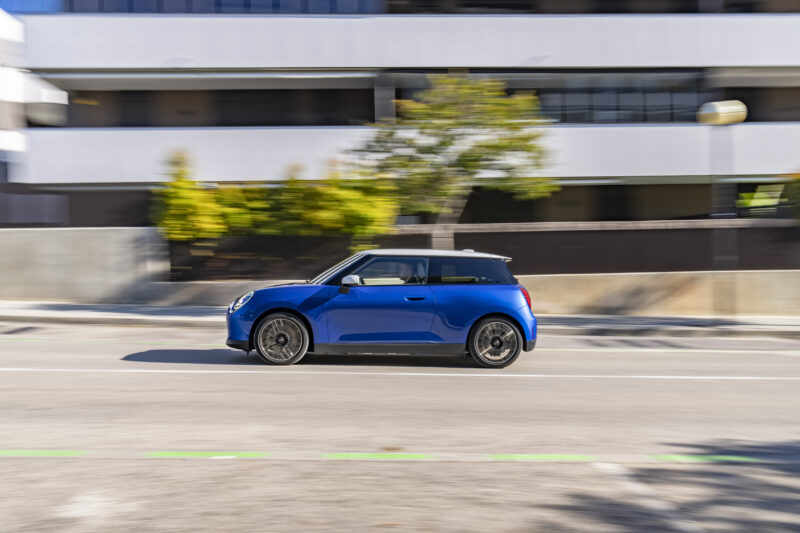
Speaking in 2022 then BMW boss Stefanie Wurst said that the Oxford plant was “not geared up for mass production”. Under the plans for Mini the Oxford plant will actually stop making electric Mini cars between 2024 and 2026. The fourth generation Mini (J01) is strictly speaking electric only and rides on a platform co-developed with Great Wall Motor. The ICE ‘fourth generation’ (F65/F66) Mini is actually just a development of the third-generation with styling to match the new electric car. From 2026 the electric Cooper and Aceman crossover will go into production at the UK plant after it has adapted to producing fully electric cars. Oxford will switch to only electric production in 2030. Meanwhile, production of cars at the Zhangjiagang plant in China finally started in October last year.
Had all things been equal the current situation where China would produce electric Mini cars and the UK ICE might have been fine, but a week is a long time in politics. September last year saw the European Commission launch a probe into Chinese EVs and the subsidies they receive. Last week initial results were announced with provisional import duties set to go into force on July 4. It should be noted that these are in addition to the 10% tariffs that existed before the investigation launched.
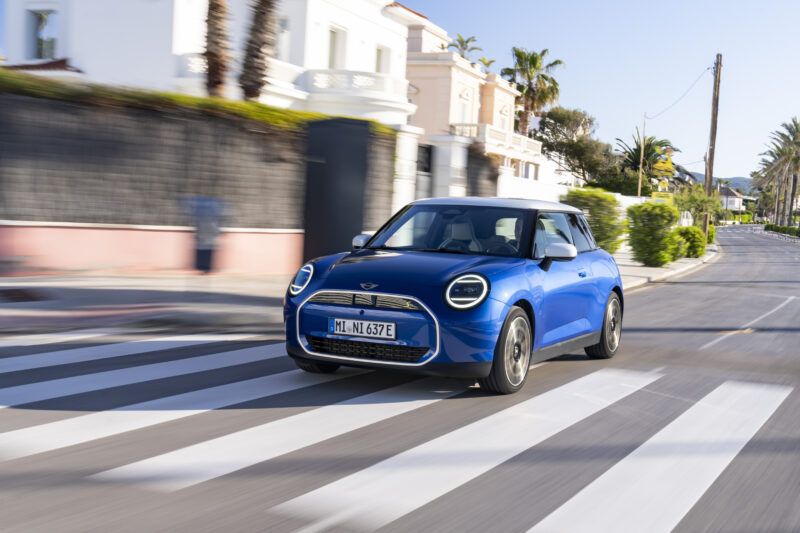
Under the new rules three producers BYD, Geely and SAIC who cooperated with the investigation were hit with tariffs of 17.4, 20.0 and 38.1% respectively. An additional 11 producers cooperated but were not sampled and were hit with a 21% tariff. All other producers are subject to 38.1% Although both BMW Brilliance and Great Wall Motor were part of the eleven other producers, Spotlight Automotive was not, meaning that the new Mini is almost certainly subject to the full 38.1%.
Further killing the case for Spotlight Automotive is that since May 14 the US increased the tariffs on imported Chinese EVs from 25% to 100%. According to various sources the new generation electric Mini will for now not be available in the US. According to Motoring File the J01 (fourth-generation) Mini won’t be available until 2026, when UK production starts.
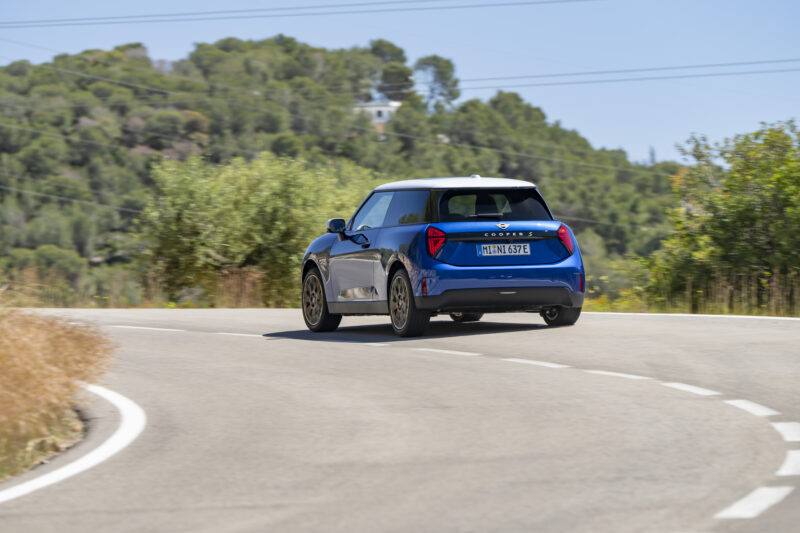
While production in China is meant to have begun last October, it seems that so far production models are heading overseas. Fast Technology claims that sales have yet to begin in China of the Chinese-produced models.
Editor’s note:
BMW originally chose China as the production base for the iX3 and since 2020 have exported the car to all markets. However, with the next generation iX3 production will initially commence at the new Hungary plant before coming to China. It seems with the iX3 that Hungary will supply the US and EU markets while China will largely supply just China and perhaps some less picky export markets such as Australia which have yet to impose tariffs on Chinese EVs.
I have always questioned the wisdom of the JV with Great Wall with it being announced months after it was no longer necessary to form a JV. Was BMW really in such a bad way with electrification that they needed to co-develop a platform with a Chinese producer, so still warranting the deal? Also given the slow progress I had thought like many things in China after an initial fanfare it would never be heard of again, obviously on that score I was wrong. Fast Technology claims the slow progress – the plant was originally meant to start production in 2022 – was down to problems including production qualifications.
A call to a UK dealer has confirmed that the J01 (fourth-generation) Mini is available currently for both test driving and delivery. Once EU tariffs hit, the electric Mini may only be available in the UK and the few other European markets not part of the EU. This would leave what was meant to be a global production base in China for the electric Mini servicing China and a few other markets not subject to tariffs.
Another mystery in the whole Spotlight project is what would happen to it after the UK plant started producing EVs again in 2026. The answer to that now seems clear, much clearer than the future of Spotlight itself.
Sources: Autocar, BMW, Fast Technology,



